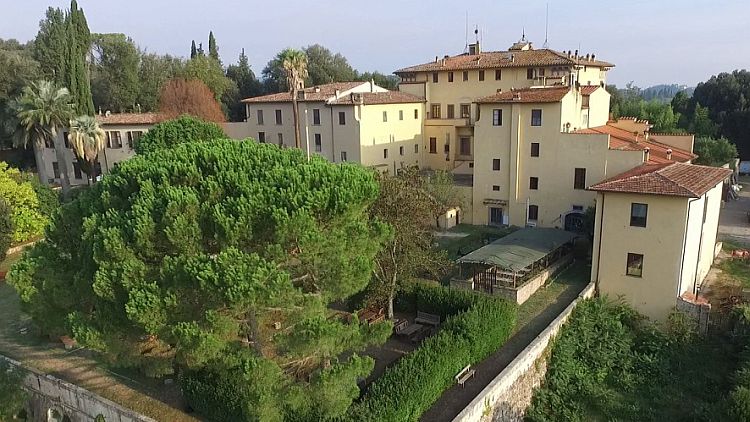IC Conference to Discuss Politics, Gaudiya Math and Religious Freedom
By Madhava Smullen | Май 11, 2017

Forty communications staff will meet in Villa Vrindavana, Italy from May 13th to 16th for the European ISKCON Communications Conference. The conference will tackle several issues that are very relevant to ISKCON today.
ISKCON Communications is an organization that builds relationships with groups outside of ISKCON – such as politicians and world leaders, leaders of other religious groups, and the media. It also reflects to ISKCON leadership how our society is perceived in the world and how we can improve, remedy shortcomings and connect more with people.
On Saturday, its first day, the conference will host a panel on ISKCON and Politics. “We may not be so interested in politics in terms of one party or another,” says European Communications Director Mahaprabhu Das. “But we do support politicians based on the issues – for instance respect for minorities, environment, and animals.”
On the panel Italian politician and friend of Krishna Ugo Papi will speak about politics and religious minorities. Meanwhile ISKCON Communications staff from Europe, the UK and India will discuss how and why they interact with politicians, and what current political trends might affect ISKCON such as the rise of the extreme right in Europe and the U.S.
On Sunday, a panel will talk about the historically difficult relationship between ISKCON and the Gaudiya Math. Academic Pranava Das will give a history of the Gaudiya Math after Srila Bhaktisiddhanta Sarasvati, and provide information on the current most active Maths and their leaders.
ISKCON leaders from the UK and Italy will then talk about their experiences with Gaudiya Math devotees, challenges that arise, how to deal with those challenges in a mature Vaishnava manner, and how to develop more cooperation between the two groups.
“Our goal is to gain objective information and understanding, try to overcome the difficulties in our relationship and cooperate together,” says Mahaprabhu.

The 2013 ISKCON Communications Conference in Budapest, Hungary
On Monday, a panel will address ISKCON, Media and Religious Freedom. Starting the discussion, Professor Massimo Introvigne, a famous Italian sociologist, will speak on the current challenges to religious freedom in Europe and around the world.
Dr. Maria Cristina Carratù, a journalist for the Italian newspaper La Repubblica, will then speak about the topic from her media perspective. And Christoph Nitz, a devotee from Germany, will analyze the relationship between ISKCON and the media in his country.
Elsewhere in the conference, former European ISKCON Communications Director Shaunaka Rishi Das will talk about how communications is not about PR, covering up, or manipulation, but about developing real relationships, promoting our values and principles, acknowledging our weaknesses, and finding areas where we can improve.
Father Alfredo Lacopozzi from the Vatican will speak about Interfaith Dialogue from a Catholic Perspective, talking about his work in interfaith and how both his church and ISKCON are in favor of dialogue with other religious communities.
ISKCON Communications staff from around the world will also report on their efforts throughout the past year in their countries; and International ISKCON Communications Director Anuttama Das will discuss how to improve communications strategies and how to make ISKCON leaders more aware of the importance of external communications.
“We would like to have more temple presidents, regional secretaries and GBCs attend our conferences and prioritize communications,” says Mahaprabhu.
To try and create more awareness, Mahaprabhu will be attending the next ISKCON European Leaders Meetings in New Mayapur, France in September. To show the importance of communications, he will talk about how Srila Prabhupada prioritized meeting with the media, politicians, and religious leaders wherever he went to tell them how Krishna consciousness could make an impact and be relevant.
Mahaprabhu will also explain how communications can help ISKCON reflect on itself and improve, and how bringing in experts from different fields can be valuable.
“So far, that’s not been a part of our leadership’s culture,” he says. “But hopefully we can bring that element to future ISKCON leaders’ meetings. We as devotees lack expertise in many areas, and unless we consult with experts and gain proper information we won’t have much of an impact on the relevant issues in the world.”















